RH Opens San Francisco Gallery in Historic Bethlehem Steel Building
- Oops!Something went wrong.Please try again later.

When it comes to retail, RH doesn’t know the meaning of the word “small.”
True to form, the brand perhaps best known by its former moniker, Restoration Hardware, just opened its latest gallery in San Francisco’s Bethlehem Steel Building on Thursday, inviting the public into the historic 80,000-square-foot neoclassical space.
More from WWD
Why the Fiorucci Store Was the Mother of All Retail Concepts
Unites States Retail in the Aftermath of Police Brutality Protests
Nestled in the city’s trendy Dogpatch neighborhood, the structure was designed by celebrated American architect Frederick H. Meyer and built in 1917 for Bethlehem Steel.
“We are both humbled and honored to play a part in the reestablishment of San Francisco’s historic shipyards, and to reimagine the iconic Bethlehem Steel Building into a place open to the public for the very first time,” Gary Friedman, chairman and chief executive officer of RH, said in a statement. “This was a rare opportunity to do what we love, in a city that we love and call our home.”
The gallery is close to the company’s headquarters in Marin County. But although convenient, the location wasn’t the motivation. The building’s history and industrial and artistic roots were irresistible for Friedman, as they fit into his vision for transcending traditional retail environments.
Meticulously restored, the expansive San Francisco gallery was years in the making, with a careful eye fixed on delivering opulence and glamour across its five floors. RH’s signature neutral palette affords a classic, yet modern luxe sensibility.
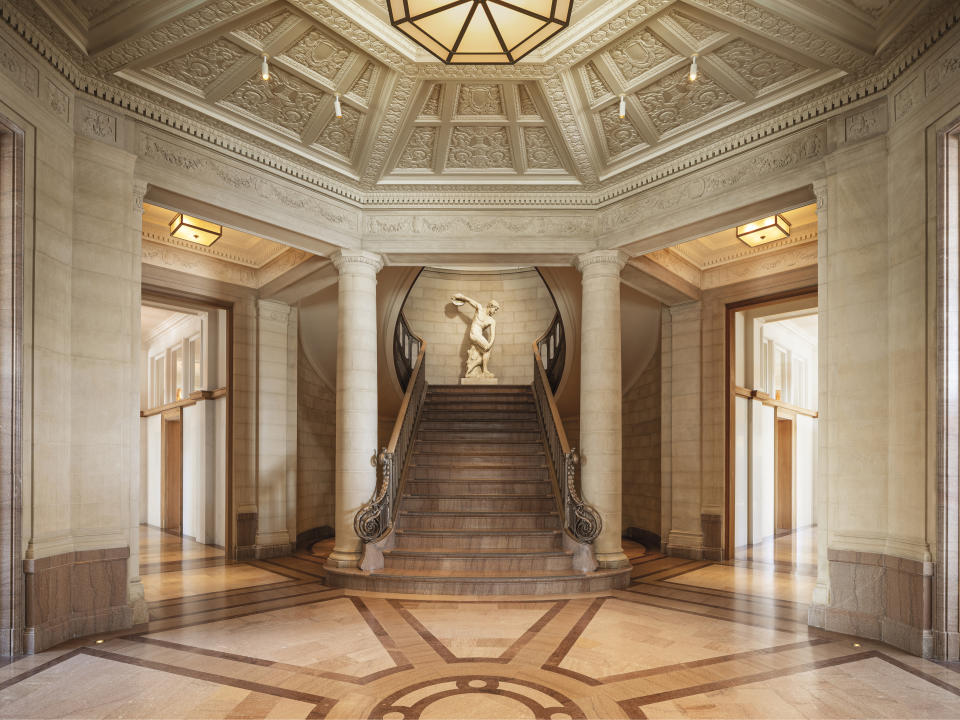
Courtesy photo
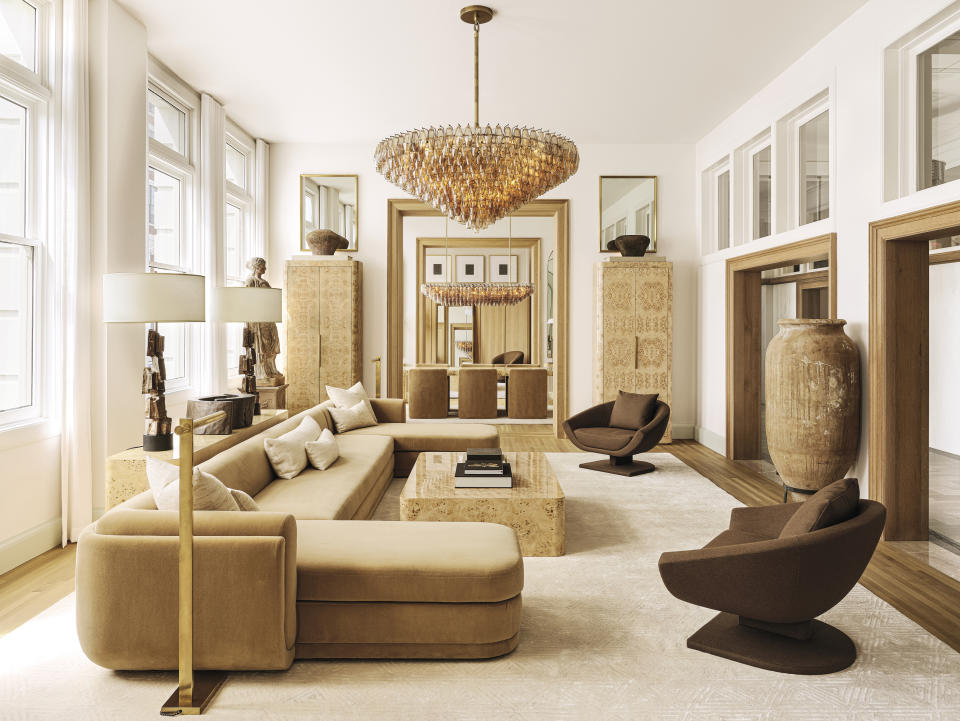
Courtesy photo
The attention to detail extends to the services as well, with an RH Interior Design Firm & Atelier, its largest to date at 10,000 square feet, residing on the lower level. Home to the company’s in-house designers, the section serves as a creative space where clients can customize products and see samplings and materials — such as wood finishes for furniture, stones, upholstery and fabrics — as well as an RH rug showroom.
The company’s two brand extensions, RH Interiors and RH Modern, welcomed a third via a San Francisco exclusive as well. Conceived as a way to bridge the gap between the two, with the former’s more traditional aesthetic and the latter’s modern design, the new RH Contemporary brings a global lens to home furnishings. It marks its debut for spring 2022 at the Bethlehem Gallery, which is currently the only place the public can view the collection.
But pushing or promoting product is never wholly the point for RH establishments. Hospitality is as much, if not more, of a priority.
Here, the space is anchored by the Palm Court Restaurant, a live-fire dining establishment with a glass rooftop or skylight, while two onsite wine bars tempt patrons with a global selection, including offerings from acclaimed vintners in nearby Napa Valley. Guests can also wander the indoor and outdoor spaces, including a rooftop park, to take in the stunning waterside and city views.
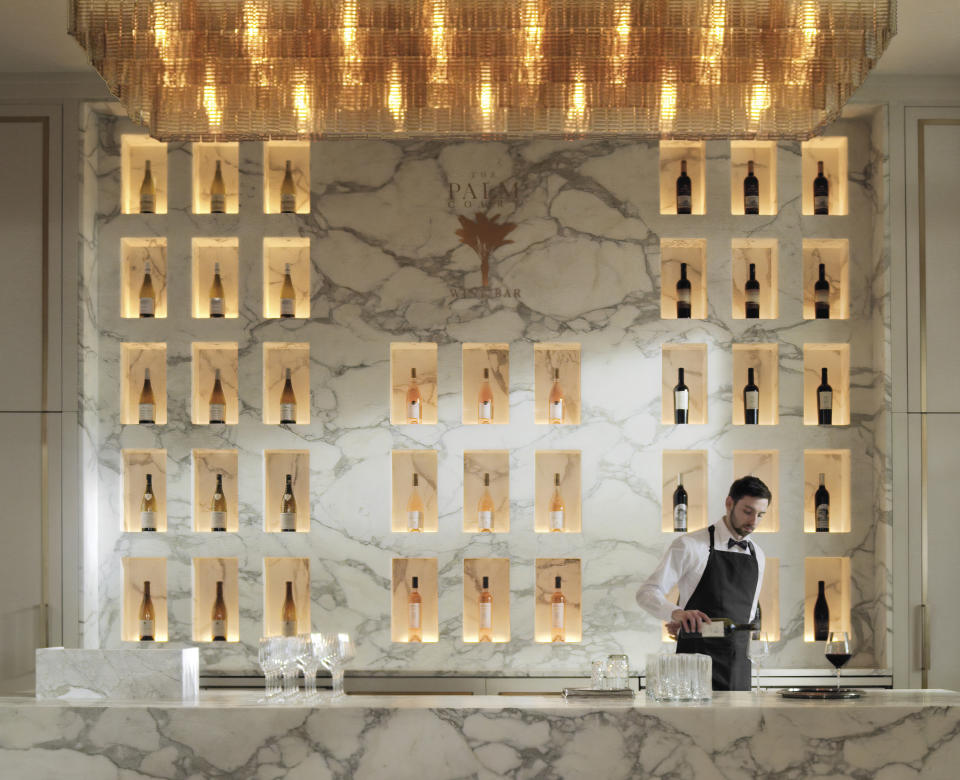
Courtesy photo
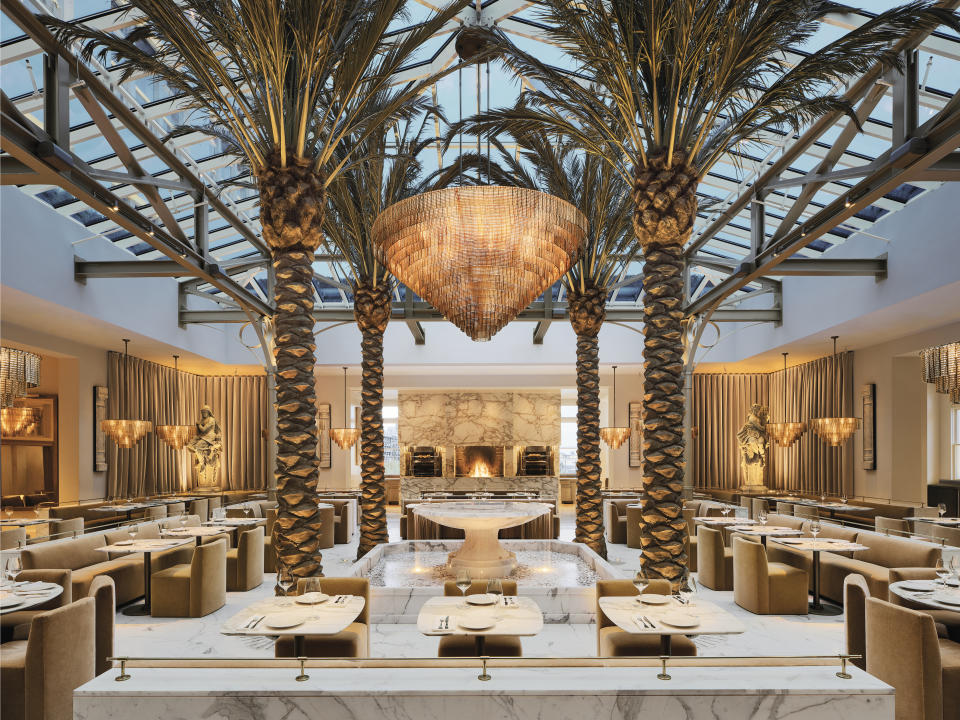
Courtesy photo
The effort recalls RH’s landmark opening in Manhattan’s Meatpacking District four years ago. The space has become a notable New York destination since then, and it’s clear that the company hopes to repeat that success in its native Bay Area by hewing to the CEO’s long-standing vision.
As Friedman told WWD in 2018, RH’s commitment is “to create a deeper connection and experience,” with less emphasis on selling home furnishings than making people feel at home. This theme now extends to a growing portfolio of dozens of galleries across the U.S. and Canada.
It comes down to “our ability to transform our legacy stores into multidimensional design galleries that double our retail revenue and profitability in every market,” he explained during his first-quarter 2021 earnings call.
He shed more light on this business ethos in subsequent calls. The CEO believes that offering inspiring experiences in physical locations generates a greater sense of value for the products. It also boosts brand awareness, allowing the company to capture more market share at lower ad costs.
The sentiment isn’t new for Friedman, but it stands out right now as the retail sector at large rethinks its approach to brick-and-mortar locations. Opinions are split over whether stores should scale down or shutter, transition to showrooms or merely serve as glorified fulfillment centers for a booming e-commerce economy.
In that context, Friedman’s bet on physical spaces, and focus on unique experiences that can’t be replicated online, may offer an important test. But parsing how successful this strategy has been is challenging, especially lately.
The sector boomed during the pandemic, as people stuck at home focused on fixing up their spaces. Spending for furniture, appliances and equipment jumped $12.1 billion — and that was just for the second quarter of 2020 alone, according to a Comscore e-Commerce and m-Commerce Measurement study. Research firm Earnest pegged fivefold growth from pre-pandemic levels, at up to 50 percent during that period.
But these days, demand appears to be softening. Meanwhile, issues like supply chain problems and Russia’s invasion of Ukraine have disrupted multiple industries. It remains to be seen what consumer appetites will look like as more vaccines go out and more restrictions ease.
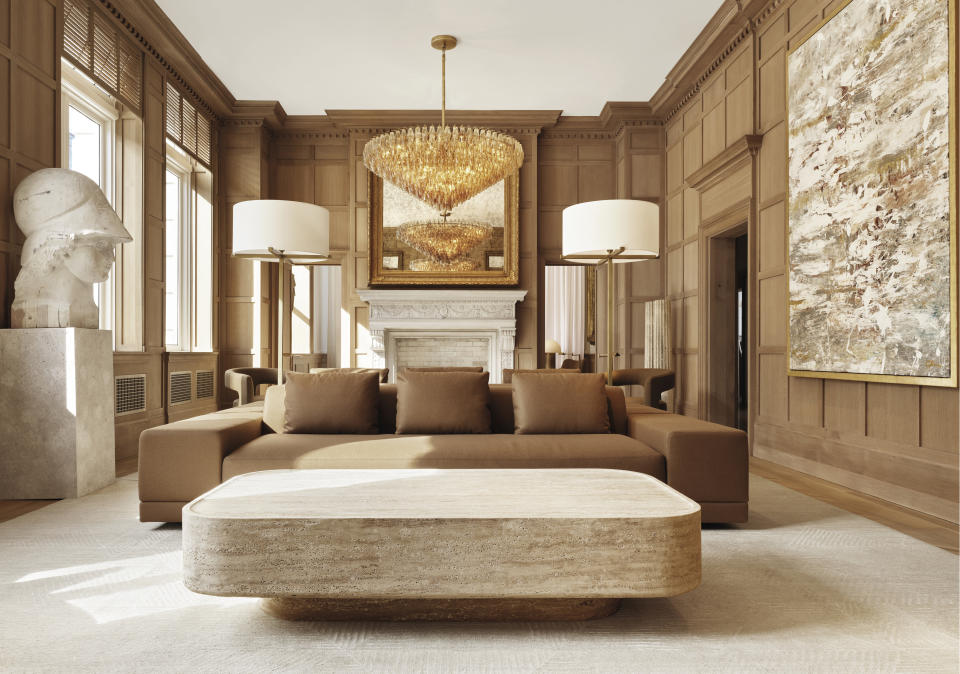
Courtesy photo
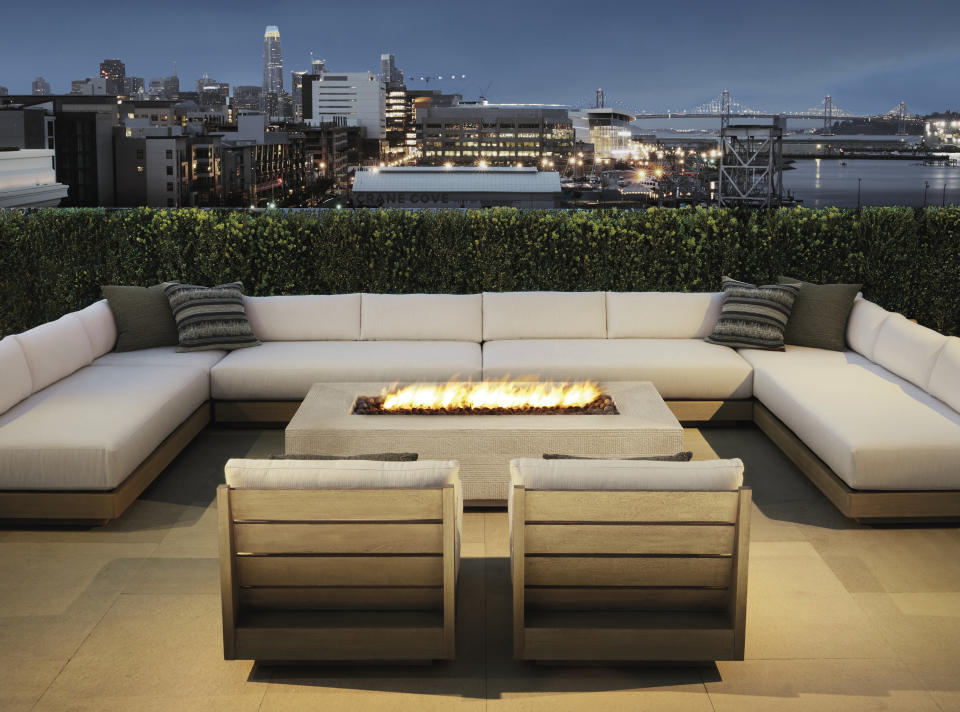
Courtesy photo
Last year, RH’s annual revenue grew 32 percent to $3.76 billion, with fourth-quarter revenue up 11 percent at $903 million — which showed growth, but fell short of expectations. What happens next looks unpredictable.
Then again, if consumers are yearning to go out, there’s something rather logical about giving them unique experiences and destinations to visit.
Either way, Friedman is ploughing forward. In the latest earnings call in March, he pledged that “our plan to open immersive design galleries in every major market will unlock the value of our vast assortment, generating revenues of $5 billion to $6 billion in North America, and $20 billion to $25 billion globally.”
His belief that the galleries offer a major competitive advantage for the brand is unchanged, as he now welcomes the “most extraordinary new bespoke gallery to date” in San Francisco — which, whether successful or not, does prove one thing: Friedman apparently has nerves of steel.
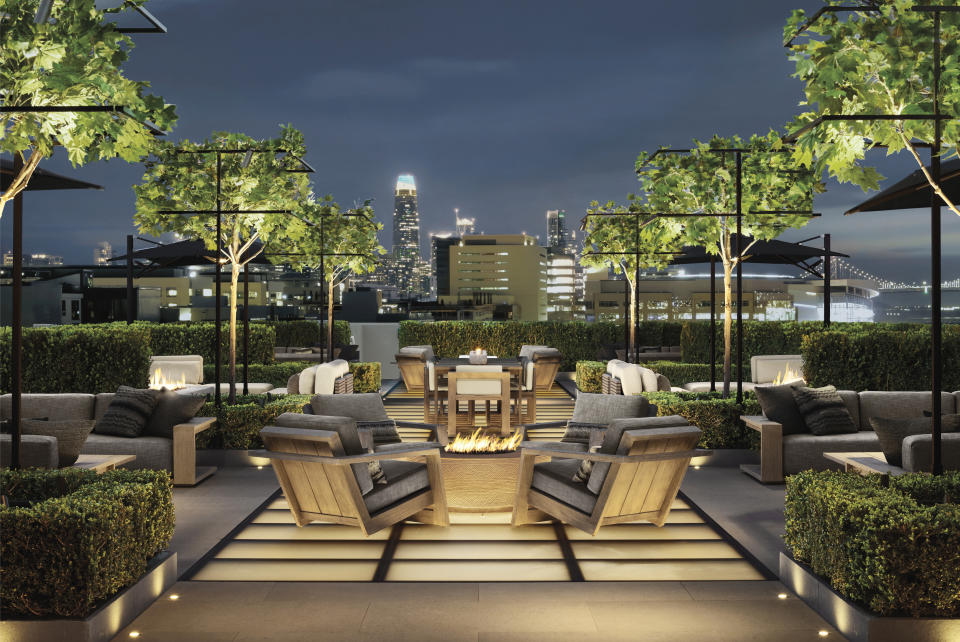
Courtesy photo
Sign up for WWD's Newsletter. For the latest news, follow us on Twitter, Facebook, and Instagram.

